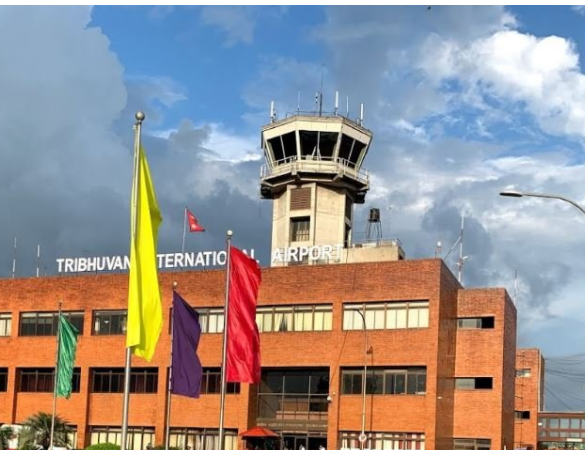
- Safety on the Air begins with the prevention on the ground
Of course the safety of an aircraft in flight relies on the effectiveness of preventive measures put into practice on the ground. Chicago convention and International Civil Aviation Organization - ICAO are the source of all these preventive measures for all of its 193contracting states.
- Creation of Chicago Convention and ICAO
The foundation of aviation history was laid down in 1903 which began with the invention of the flying machine by the Wright Brothers – Wilber and Orville Wright in 1903. The first historical flight lasted 12 seconds and had completed a distance of 120 feet at Kitty Hawk, United States of America. Wright brothers had opened the door of aviation and had let the people work upon its improvements. Consequently, the credit of achieving a second successful flying went to Bleriot who crossed the 50 Kms distance of the English Channel on 25 July 1909. Since then remarkable progress in aviation has been achieved. Over the last 117 years of aviation history, from monoplane at the beginning, people have enjoyed flying supersonic aircraft. People of the present global village do not have time for a months-long journey, if they have their breakfast in New York, they need their lunch in London and dinner may be in another part of the world. Air transport is facilitating their current need.
In the course of the development of aviation h, states are more concerned with maintaining their safety and security as they are essential for its sustainable development. Further in fact these two elements are pre-requisite for the growth of any kind of industry. An instrument acceptable to the states and an organization to look after the implementation of such an instrument was required to be created for the constant growth of global aviation by preventing unhealthy competition between the states.
As a result, the Chicago Convention as an international instrument and the International Civil Aviation Organization - ICAO the organization responsible to adjust the instrument according to the need of changing environment as well as monitoring its implementation was created in 1944 in Chicago, United States of America. Latter, ICAO was recognized as a United Nations specialized agency of International Civil Aviation. To date, 193 states are the contracting states of ICAO. Nepal became a member of ICAO in 1960. ICAO formulates all aviation-related standards to meet the requirements of the Chicago Convention and ultimately to maintain the safety, security, regularity and efficiency of international civil aviation. All 193 member states follow these standards. That is why there is uniformity in all the states in all aspects of aviation. However, because of a lack of resources, it is difficult to manage high-tech security gadgets in some countries. All 193 member states have an international obligation towards aviation safety and security in addition to the National obligation of protecting the lives of travelers. ICAO is actively engaged in developing guidance materials to assist its member states in combating safety and security-related challenges.
Offense against the safety of civil aviation:
The offense against the safety of civil aviation began with political reason. A small plane was hijacked in Peru in 1931 to distribute anti-government pamphlets from the air. Over the years of offense against air transport, the nature of crime has been changing from hijacking at the beginning to sabotage of airplane and aviation infrastructure, armed assault, suicidal attack, etc. September 11, 2001 incident (known as the 9/11 incident) had shaken the whole world aviation community and compelled to restructuring the prevailing aviation security system in a more effective and efficient manner.
In addition to maintaining law and order within the state, states also have their international obligation in aviation under the Chicago Convention. States, therefore, enact appropriate legislation to implement international requirements. There are various kinds of such provisions to be incorporated in the act. Civil Aviation Act of Nepal in which aviation security provisions were incorporated first time in 1973 contains information that must be known by all personnel involved in aviation operation as well as the general public. Like one of the examples as required by ICAO and contained in the act which is "communicating false information by intention which may endanger the safety of aircraft in flight has been declared as a crime punishable with life imprisonment" Shall be known by all. There is other various information to be known by all. The act defines a crime against civil aviation operations and the punishment thereto. The act requires the declaration of airport restricted areas and control of unauthorized access to these areas, violation of which shall be subjected to the punishment. Act also requires the security search of persons and goods before being allowed to board or approach aircraft. Taking under consideration the civil aviation act of Nepal which includes aviation security provisions, section 10A (10 Ka) of the act has the provision of airport restricted area and access control to such area, unauthorized entry to which leads legal penalty. This provision must be made aware to all the people specifically those of surrounding communities. Section 9E of the act authorizes passengers, airport staff and visitors as well to take any suspect under custody and detain till handed over to police. The things considered as a minor that may be developed later as vulnerable. The presence of large numbers of meters and greeters present at the airport may create pressure on aviation security.
There are various instances that the traveler and airport visitors had to face shameful and even panic situation sometimes because of not being aware of security-related provisions. Many instances are there that the airport operators have to face difficulties in managing airport security because of public ignorance in aviation security. It is therefore essential to make the public aware of the importance of their cooperation in strengthening aviation security and create an environment to get their support rather than to blame them.
Public Support in enhancing and maintaining aviation security:
Public support of course is an essential ingredient in the course of sustainable development of aviation. People may perceive it to be a more balanced facility and of course business approach to their economical and social objectives. People therefore could not be kept separated from the aviation industry. In each step of its sustainability effort, development, safety and security, aviation needs peoples’ support and cooperation. Considering this ground reality, the aviation authorities should launch various notification and awareness programs to gain public support and cooperation.
When compared with other modes of industry, the aviation industry faces organizational complexity as aviation operators are not only the user of the facility, there may be hundreds of users and the aviation operator often have limited influence over them and obviously difficult to convince. Without the cooperation and support of tenants, it is not possible to launch any new developmental program.
The issue is more challenging in under-developed and developing countries where literacy level is very low, it is difficult to gain public support in ensuring the security of civil aviation because of lack of awareness. People may misunderstand aviation security as to make them trouble instead of realizing the reality that it is for the protection of their lives.
Today’s global issue is to manage the challenge of sustainable development in the aviation industry. Sustainability not only means development but considers economical viability and social responsibility. For these reasons, stakeholders and public support and cooperation become more crucial.
Some aviation security-related information may be considered sensitive information and must be kept confidential to those only who actually need the information in maintaining safety and security. Of course, most of this information is sensitive but not all. In fact, some of such information as mentioned earlier should be made available to the general people to make them aware and creating a friendly environment to get their support towards the implementation of preventive measures.
Conclusion:
People’s support and cooperation towards the development of the aviation industry by maintaining its safety is one of the most crucial components which could be achieved by making them aware of the vulnerability of industry, by making them aware that some of the provisions needed to maintain the safety of civil aviation could not be comfortable to them but are essential for the protection of lives. An effective mechanism should be established by the states for launching a regular public awareness program.
Dhakal is a former ICAO Aviation security Instructor, ICAO Aviation Security Auditor. Director of Aviation Security, Civil Aviation Authority of Nepal. He can be reached at dhakalbharatraj8@gmail.com
















